Quotes & Sayings About Morphology
Enjoy reading and share 29 famous quotes about Morphology with everyone.
Top Morphology Quotes
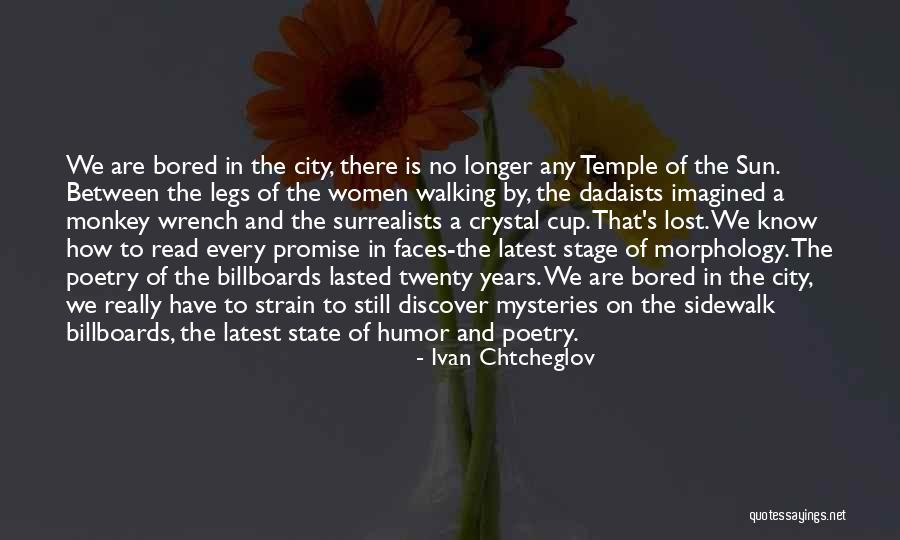
We are bored in the city, there is no longer any Temple of the Sun. Between the legs of the women walking by, the dadaists imagined a monkey wrench and the surrealists a crystal cup. That's lost. We know how to read every promise in faces-the latest stage of morphology. The poetry of the billboards lasted twenty years. We are bored in the city, we really have to strain to still discover mysteries on the sidewalk billboards, the latest state of humor and poetry. — Ivan Chtcheglov

Phylogeny and ontogeny are, therefore, the two coordinated branches of morphology. Phylogeny is the developmental history [Entwickelungsgeschichte] of the abstract, genealogical individual; ontogeny, on the other hand, is the developmental history of the concrete, morphological individual. — Ernst Haeckel
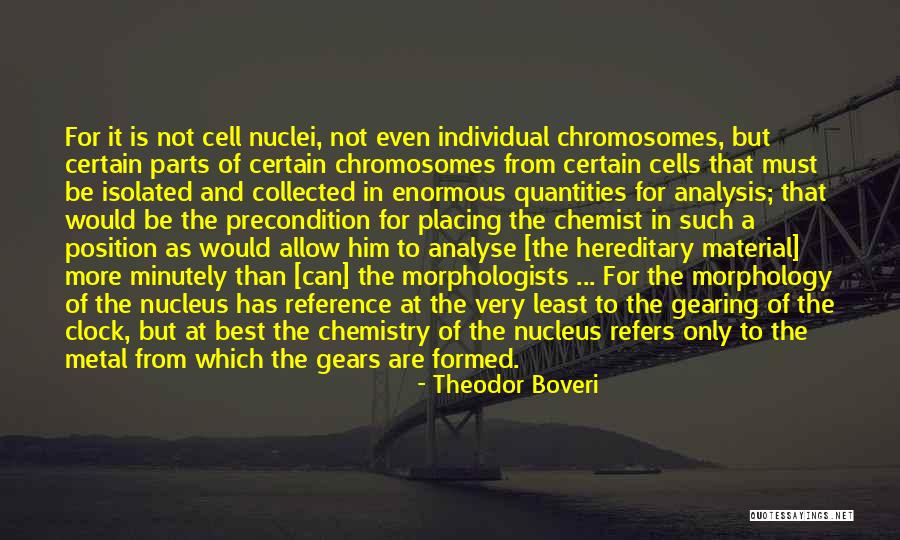
For it is not cell nuclei, not even individual chromosomes, but certain parts of certain chromosomes from certain cells that must be isolated and collected in enormous quantities for analysis; that would be the precondition for placing the chemist in such a position as would allow him to analyse [the hereditary material] more minutely than [can] the morphologists ... For the morphology of the nucleus has reference at the very least to the gearing of the clock, but at best the chemistry of the nucleus refers only to the metal from which the gears are formed. — Theodor Boveri

When addressing religion in morphology the average person will seek religious texts and otherwise human instruments and tools to explain the Universe or their own spiritual experience. Yet human hands are not paws or clawed. Humans are not quadrupeds so texts for cats is kind of out of the question one might think. — Leviak B. Kelly
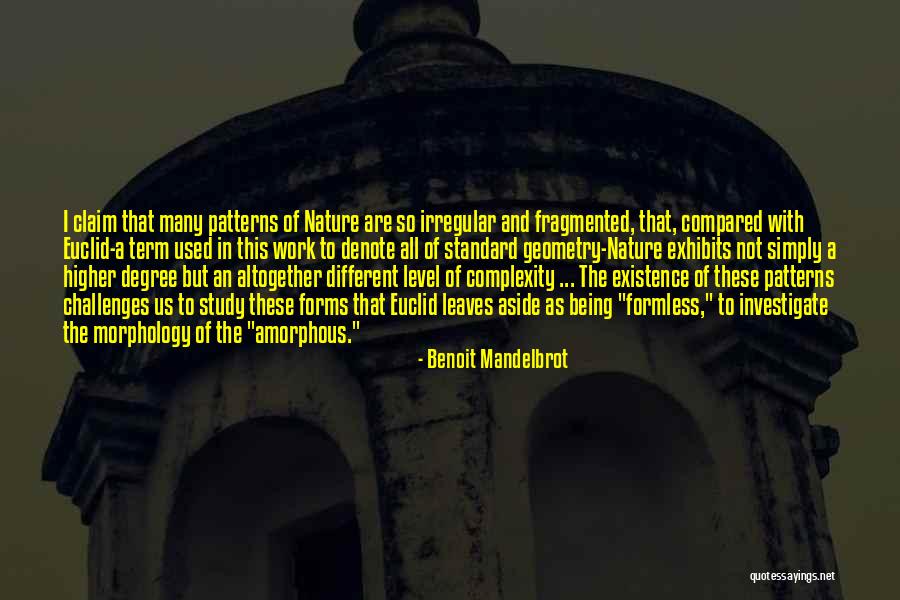
I claim that many patterns of Nature are so irregular and fragmented, that, compared with Euclid-a term used in this work to denote all of standard geometry-Nature exhibits not simply a higher degree but an altogether different level of complexity ... The existence of these patterns challenges us to study these forms that Euclid leaves aside as being "formless," to investigate the morphology of the "amorphous." — Benoit Mandelbrot
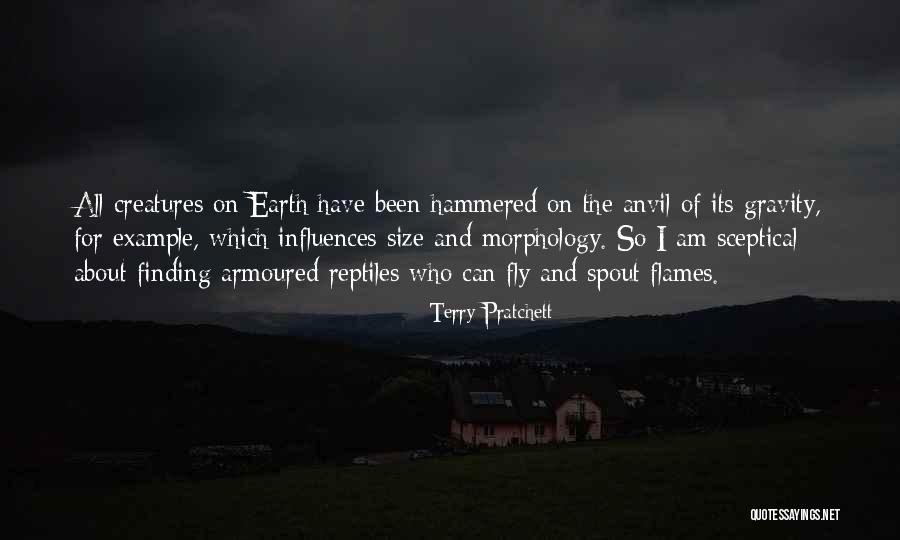
All creatures on Earth have been hammered on the anvil of its gravity, for example, which influences size and morphology. So I am sceptical about finding armoured reptiles who can fly and spout flames. — Terry Pratchett
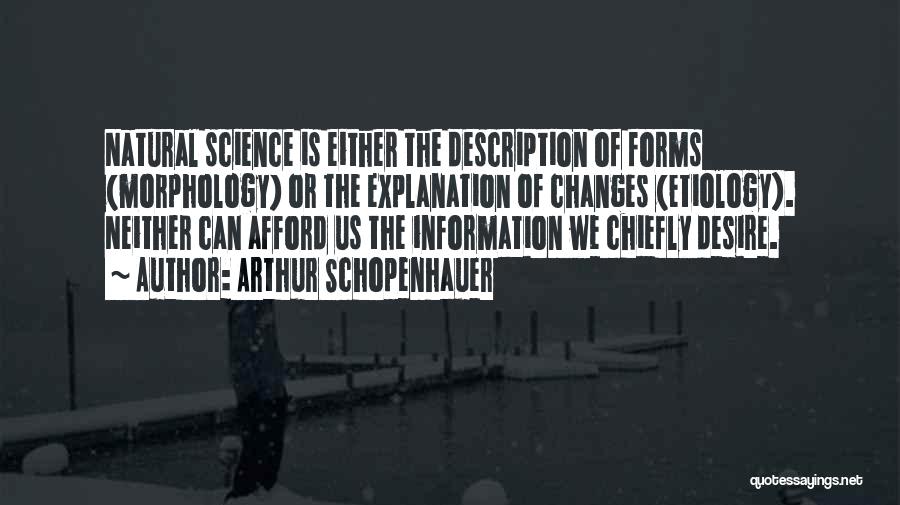
Natural science is either the description of forms (morphology) or the explanation of changes (etiology). Neither can afford us the information we chiefly desire. — Arthur Schopenhauer

Archaism, in the linguistic order, is not, in any event, synonymous with simplicity of structure, very much to the contrary. Languages generally grow poorer with the passing oftime by gradually losing the richness of their vocabulary, the ease with which they can diversify various aspects of one and the same idea, and their power of synthesis, which is the ability to express many things with few words. In order to make up for this impoverishment, modern languages have become more complicated on the rhetorical level; while perhaps gaining in surface precision, they have not done as as regards content. Language historians are astonished by the fact that Arabic was able to retain a morphology attested to as early as the Code of Hammurabi, for the nineteenth to the eighteenth century before the Christian era, and to retain a phonetic system which preserves, with the exception of a single sound, the extremly rich sound-range disclosed by the most ancient Semitic alphabets discovered, [...] — Titus Burckhardt

The idea of morphology of languages is something that I'm really interested in. — Jimenez Lai
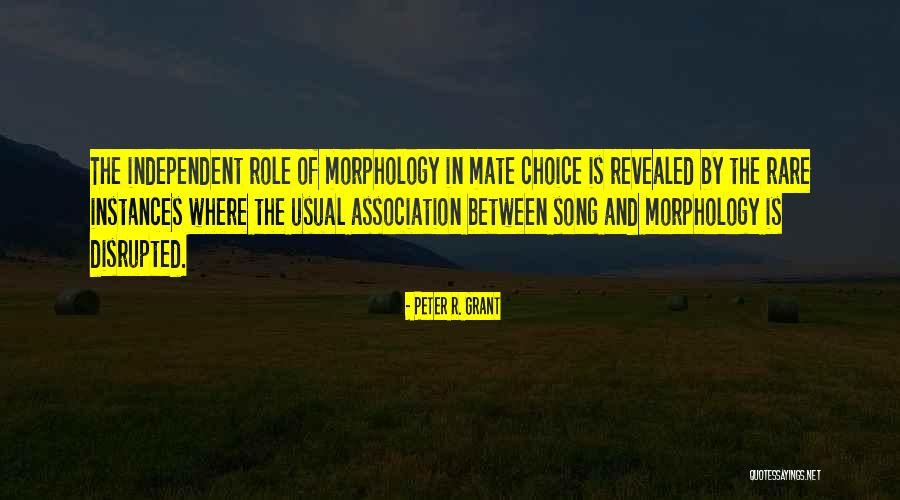
The independent role of morphology in mate choice is revealed by the rare instances where the usual association between song and morphology is disrupted. — Peter R. Grant

When I think of organizations, I think of the capabilities an organization has more than its morphology or structure. The ability of an organization to have a shared purpose and the ability for employees to be productive are critical capabilities for most organizations today. — Dave Ulrich
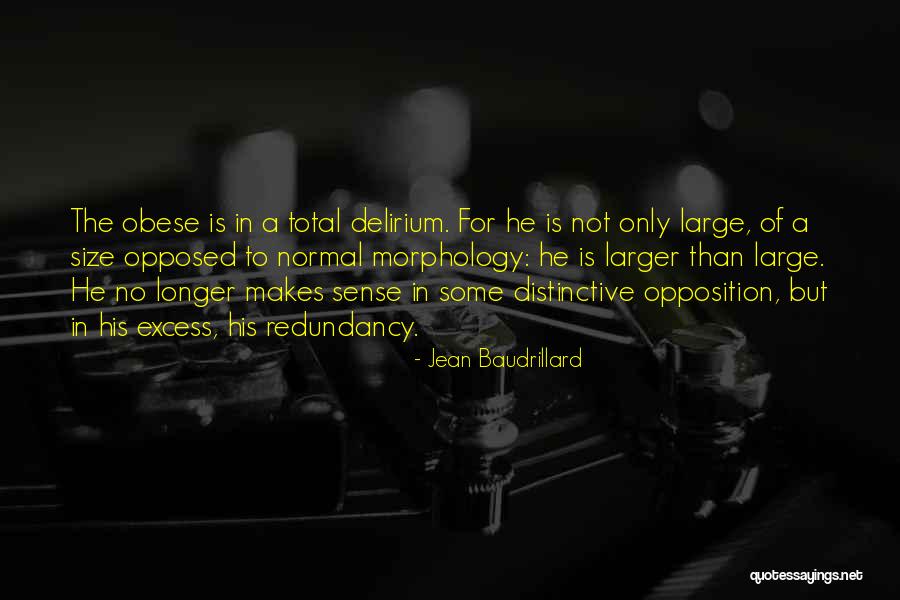
The obese is in a total delirium. For he is not only large, of a size opposed to normal morphology: he is larger than large. He no longer makes sense in some distinctive opposition, but in his excess, his redundancy. — Jean Baudrillard

The starting point of Darwin's theory of evolution is precisely the existence of those differences between individual members of a race or species which morphologists for the most part rightly neglect. The first condition necessary, in order that any process of Natural Selection may begin among a race, or species, is the existence of differences among its members; and the first step in an enquiry into the possible effect of a selective process upon any character of a race must be an estimate of the frequency with which individuals, exhibiting any given degree of abnormality with respect to that, character, occur. The unit, with which such an enquiry must deal, is not an individual but a race, or a statistically representative sample of a race; and the result must take the form of a numerical statement, showing the relative frequency with which the various kinds of individuals composing the race occur. — Karl Pearson
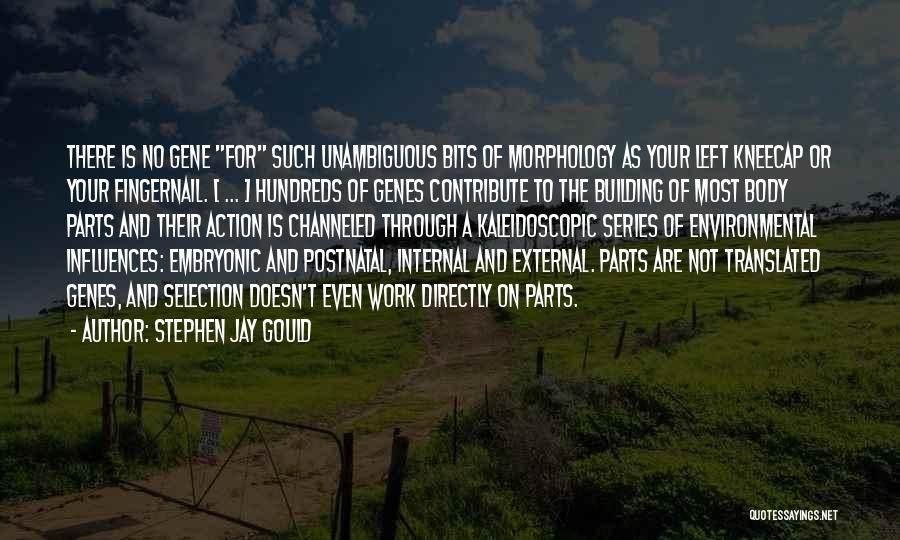
There is no gene "for" such unambiguous bits of morphology as your left kneecap or your fingernail. [ ... ] Hundreds of genes contribute to the building of most body parts and their action is channeled through a kaleidoscopic series of environmental influences: embryonic and postnatal, internal and external. Parts are not translated genes, and selection doesn't even work directly on parts. — Stephen Jay Gould

Consciousness may be seen as the haughty and restless second cousin of morphology. Memory is its mistress, perception its somewhat abused wife, logic its housekeeper, and language its poorly paid secretary — Gerald Edelman

Light. Space. Light and space without time, I think, for this is a country with only the slightest traces of human history. In the doctrine of the geologists with their scheme of ages, eons and epochs all is flux, as Heraclitus taught, but from the mortally human point of view the landscape of the Colorado is like a section of eternity- timeless. In all my years in the canyon country I have yet see a rock fall, of its own volition, so to speak, aside from floods. To convince myself of the reality of change and therefore time I will sometimes push a stone over the edge of a cliff and watch it descend and wait- lighting my pipe- for the report of its impact and disintegration to return. Doing my bit to help, of course, aiding natural processes and verifying the hypotheses of geological morphology. But am not entirely convinced. — Edward Abbey

To eliminate the discrepancy between men's plans and the results achieved, a new approach is necessary. Morphological thinking suggests that this new approach cannot be realized through increased teaching of specialized knowledge. This morphological analysis suggests that the essential fact has been overlooked that every human is potentially a genius. Education and dissemination of knowledge must assume a form which allows each student to absorb whatever develops his own genius, lest he become frustrated. The same outlook applies to the genius of the peoples as a whole. — Fritz Zwicky
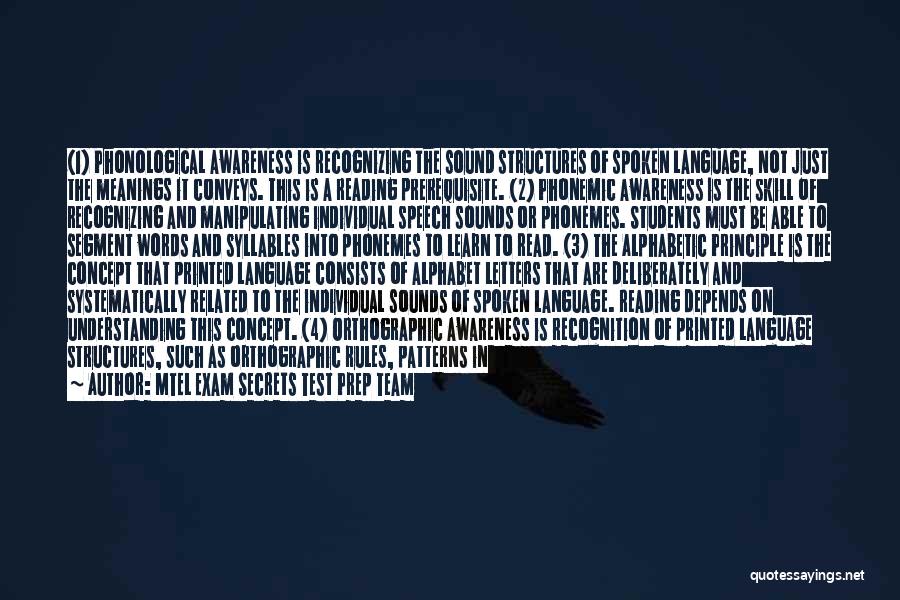
(1) Phonological awareness is recognizing the sound structures of spoken language, not just the meanings it conveys. This is a reading prerequisite. (2) Phonemic awareness is the skill of recognizing and manipulating individual speech sounds or phonemes. Students must be able to segment words and syllables into phonemes to learn to read. (3) The Alphabetic Principle is the concept that printed language consists of alphabet letters that are deliberately and systematically related to the individual sounds of spoken language. Reading depends on understanding this concept. (4) Orthographic awareness is recognition of printed language structures, such as orthographic rules, patterns in spelling; derivational morphology and inflectional morphology, i.e. structural changes indicating word types and grammatical differences; and etymology, i.e. word and meaning — MTEL Exam Secrets Test Prep Team

Moving in the conventional direction, phonetics concerns the acoustic dimensions of linguistic sound. Phonology studies the clustering of those acoustic properties into significant cues. Morphology studies the clustering of those cues into meaningful units. Syntax studies the arrangement of those meaningful units into expressive sequences. Semantics studies the composite meaning of those sequences. — Randy Allen Harris
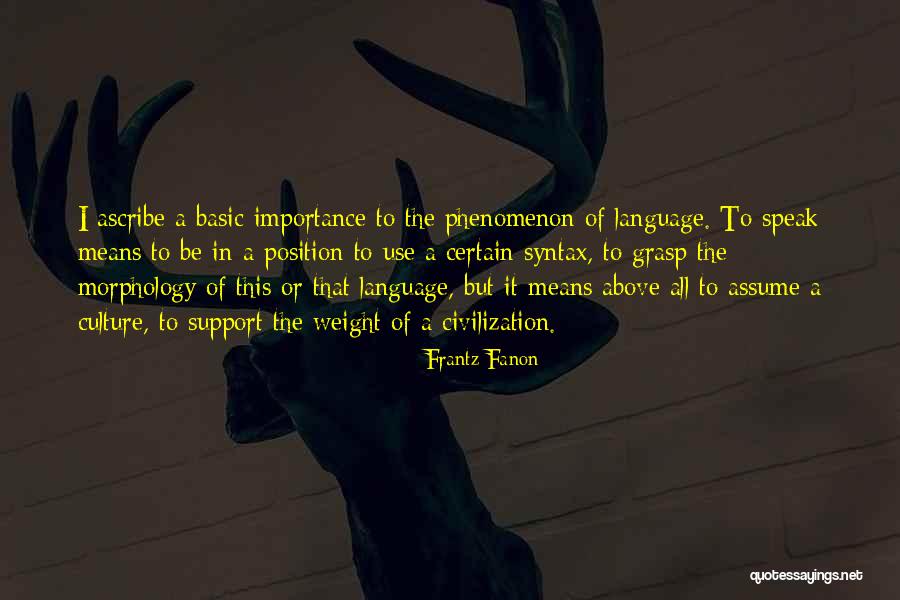
I ascribe a basic importance to the phenomenon of language. To speak means to be in a position to use a certain syntax, to grasp the morphology of this or that language, but it means above all to assume a culture, to support the weight of a civilization. — Frantz Fanon
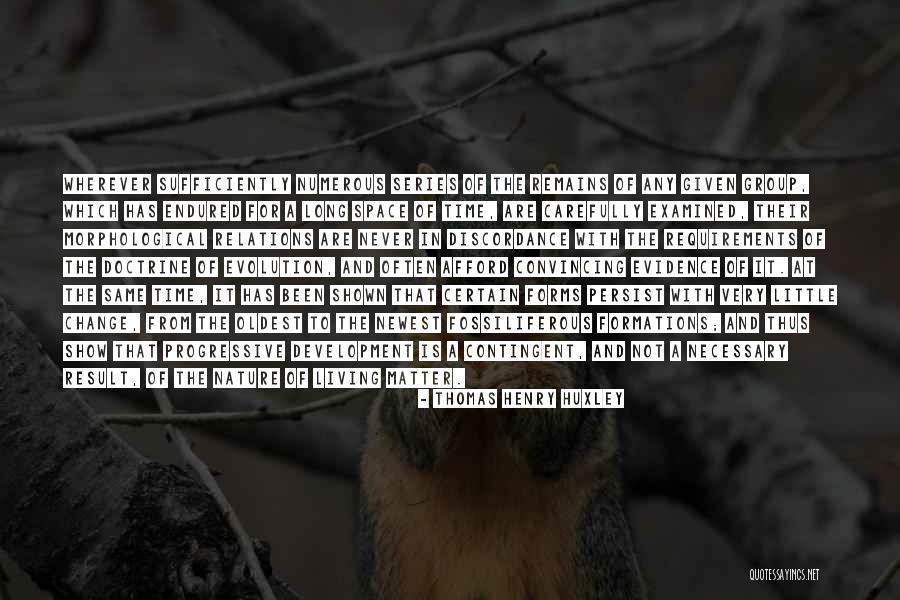
Wherever sufficiently numerous series of the remains of any given group, which has endured for a long space of time, are carefully examined, their morphological relations are never in discordance with the requirements of the doctrine of evolution, and often afford convincing evidence of it. At the same time, it has been shown that certain forms persist with very little change, from the oldest to the newest fossiliferous formations; and thus show that progressive development is a contingent, and not a necessary result, of the nature of living matter. — Thomas Henry Huxley
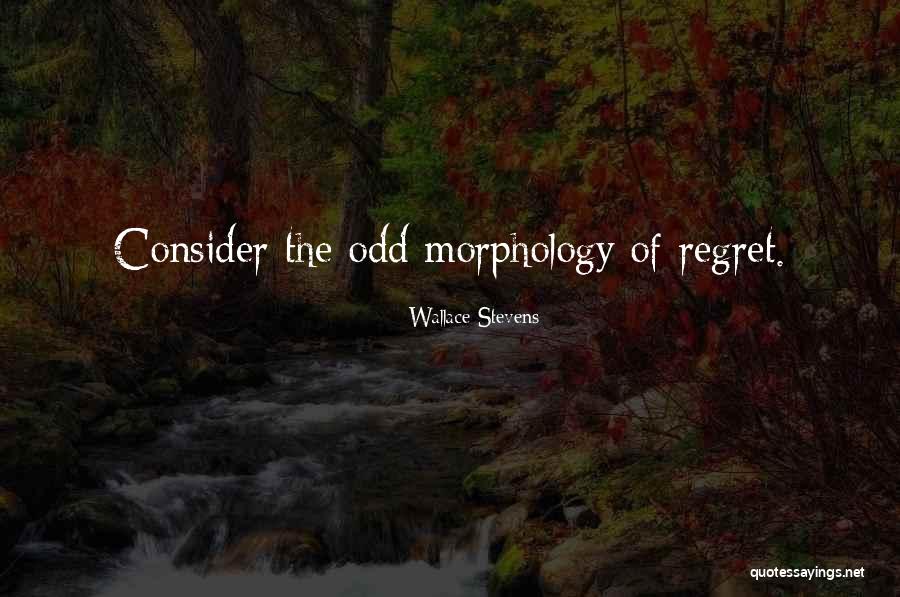
Consider the odd morphology of regret. — Wallace Stevens
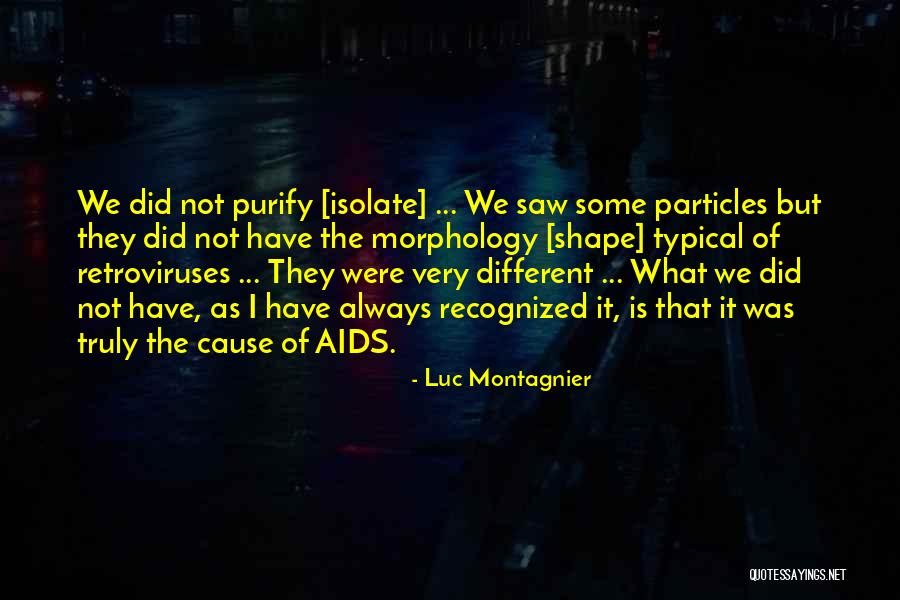
We did not purify [isolate] ... We saw some particles but they did not have the morphology [shape] typical of retroviruses ... They were very different ... What we did not have, as I have always recognized it, is that it was truly the cause of AIDS. — Luc Montagnier

We must consider the distinctive characters and the general nature of plants from the point of view of their morphology, their behavior under external conditions, their mode of generation, and the whole course of their life. — Theophrastus
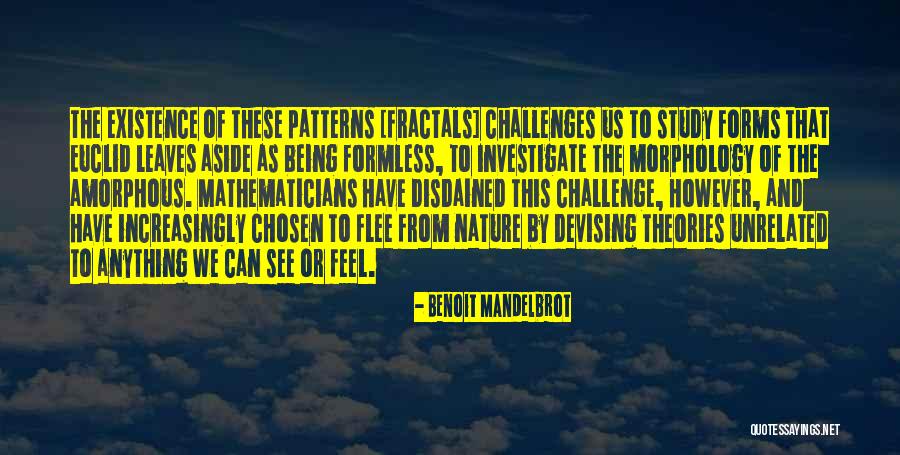
The existence of these patterns [fractals] challenges us to study forms that Euclid leaves aside as being formless, to investigate the morphology of the amorphous. Mathematicians have disdained this challenge, however, and have increasingly chosen to flee from nature by devising theories unrelated to anything we can see or feel. — Benoit Mandelbrot
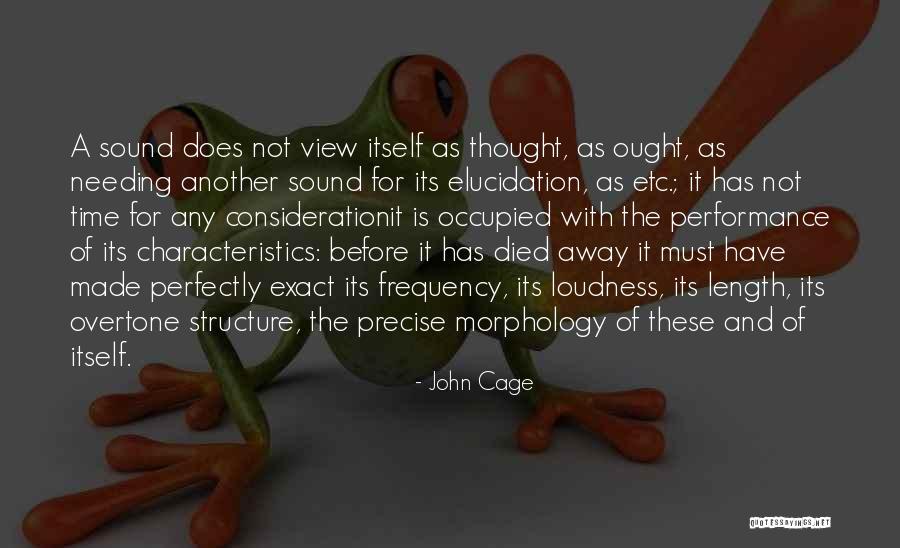
A sound does not view itself as thought, as ought, as needing another sound for its elucidation, as etc.; it has not time for any consideration
it is occupied with the performance of its characteristics: before it has died away it must have made perfectly exact its frequency, its loudness, its length, its overtone structure, the precise morphology of these and of itself. — John Cage

Goethe died in 1832. As you know, Goethe was very active in science. In fact, he did some very good scientific work in plant morphology and mineralogy. But he was quite bitter at the way in which many scientists refused to grant him a hearing because he was a poet and therefore, they felt, he couldn't be serious. — Stephen Jay Gould
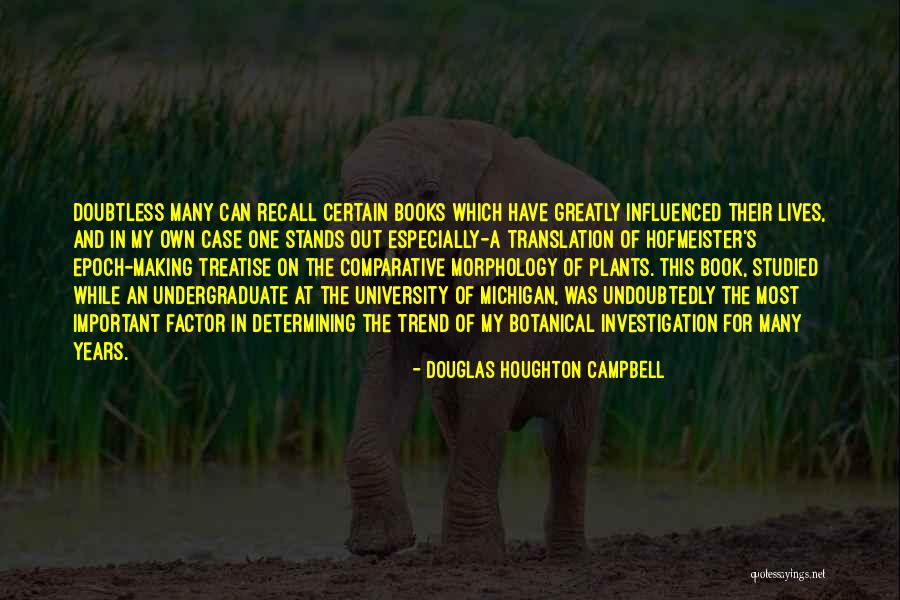
Doubtless many can recall certain books which have greatly influenced their lives, and in my own case one stands out especially-a translation of Hofmeister's epoch-making treatise on the comparative morphology of plants. This book, studied while an undergraduate at the University of Michigan, was undoubtedly the most important factor in determining the trend of my botanical investigation for many years. — Douglas Houghton Campbell






